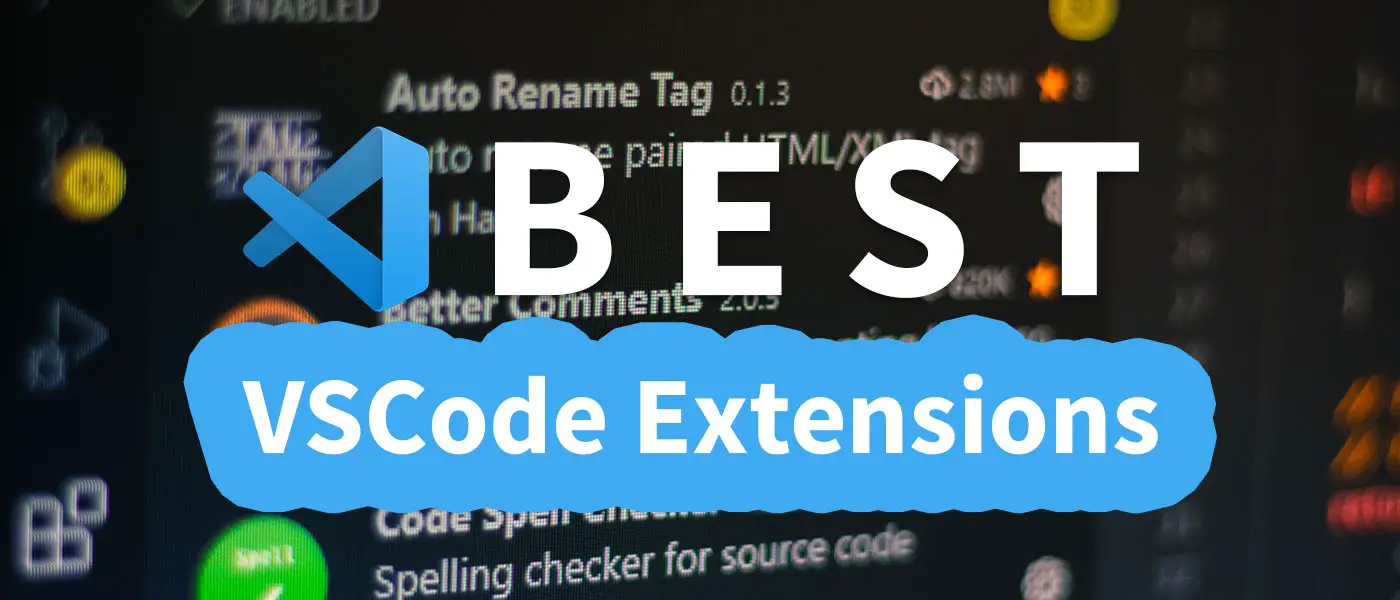Most Useful Extensions for VS Code
 Ahmed Raza
Ahmed Raza
Visual Studio Code (VS Code) has become one of the most popular code editors due to its lightweight nature, versatility, and powerful extensions. These extensions can help you enhance productivity, improve code quality, and make your coding experience more enjoyable. Whether you’re a web developer, data scientist, or backend engineer, VS Code has extensions for all your needs. Below are some of the most useful VS Code extensions that every developer should consider adding to their toolkit.
1. Prettier - Code Formatter
Prettier is one of the most widely used extensions for code formatting. It automatically formats your code according to a consistent style every time you save a file. This is extremely helpful for maintaining readability and reducing the chances of making formatting mistakes. Prettier supports multiple languages, including JavaScript, TypeScript, CSS, HTML, and more.
Key Features:
Auto-formats code when you save
Customizable formatting rules
Integrates with many languages
Why It's Useful: It ensures that your code is consistently formatted, which improves readability and helps teams adhere to a common coding standard.
2. Live Server
Live Server is a must-have for front-end developers. It enables you to launch a local development server with live reloading. Whenever you make changes to your HTML, CSS, or JavaScript files, Live Server refreshes the page automatically, so you can see the results in real-time.
Key Features:
One-click to start a development server
Real-time browser refresh
Supports HTML, CSS, and JavaScript
Why It's Useful: It speeds up the development process by allowing instant previews of your changes without manually refreshing the browser.
3. ESLint
ESLint is a powerful tool for identifying and fixing issues in your JavaScript and TypeScript code. This extension helps enforce coding standards and catch errors before they become a problem. It integrates seamlessly with VS Code to highlight problems in your code as you type and provides suggestions for fixing them.
Key Features:
Static code analysis for JavaScript and TypeScript
Customizable rules for code style and best practices
Integration with Prettier for auto-fixing
Why It's Useful: ESLint improves code quality by catching potential issues early and encouraging the use of best practices.
4. GitLens
GitLens is an essential tool for anyone working with Git. It supercharges the built-in Git functionality in VS Code by providing rich visualization and insight into your code's history. GitLens helps you understand who last modified a line of code, when it was changed, and why the changes were made.
Key Features:
Annotate and explore Git blame information
Visualize code changes and commit history
Powerful search for Git-related information
Why It's Useful: It improves your understanding of project history, enhances collaboration, and simplifies troubleshooting when working with version control.
5. Debugger for Chrome
The Debugger for Chrome extension allows you to debug JavaScript code directly in VS Code while running it in the Chrome browser. This tool makes it easy to set breakpoints, inspect variables, and step through code without leaving your editor.
Key Features:
Directly debug JavaScript running in Chrome
Set breakpoints, watch variables, and inspect call stacks
Launch or attach to Chrome instances
Why It's Useful: It eliminates the need to switch between your code editor and browser, improving your debugging workflow.
6. Bracket Pair Colorizer
This extension colors matching brackets, parentheses, and curly braces, making it easier to navigate and understand your code. Especially in large files with nested structures, Bracket Pair Colorizer helps you quickly identify pairs of brackets and spot errors related to mismatched syntax.
Key Features:
Colorizes matching brackets for better readability
Customizable color schemes
Supports various programming languages
Why It's Useful: It makes working with nested code much easier and reduces the risk of syntax errors.
7. Python
For Python developers, the official Python extension for VS Code is indispensable. It provides rich support for Python development, including IntelliSense, debugging, linting, and unit testing. It also offers integration with Jupyter Notebooks and remote development environments.
Key Features:
IntelliSense (auto-completion and code suggestions)
Debugging, linting, and formatting support
Jupyter Notebooks integration
Why It's Useful: It turns VS Code into a full-featured Python development environment, allowing you to write, test, and debug Python code more efficiently.
8. Material Icon Theme
The Material Icon Theme enhances the visual appearance of VS Code by providing a set of modern, intuitive icons for your files and folders. This extension is especially useful for those who work with large projects with multiple files and want to quickly identify the type of file at a glance.
Key Features:
Beautiful and recognizable icons for all file types
Customizable color schemes
Supports a wide range of file extensions
Why It's Useful: It improves file navigation and enhances the overall user interface of VS Code, making it easier to find files and folders in your workspace.
9. Docker
The Docker extension for VS Code allows you to build, manage, and deploy containerized applications directly from within the editor. It integrates with the Docker CLI, Docker Compose, and Dockerfile, making it easy to work with containers in your development workflow.
Key Features:
Build, run, and manage Docker containers
Intuitive Dockerfile and Docker Compose support
Quick access to container logs and resource monitoring
Why It's Useful: If you're working with Docker, this extension simplifies container management without having to leave your development environment.
10. Remote - SSH
For developers who work remotely or need to access a development environment on a remote server, the Remote - SSH extension is a game changer. It allows you to connect to any remote machine and work as though you're working locally, all from within VS Code.
Key Features:
Seamless SSH connection to remote machines
Access remote files and folders as if they are local
Run and debug code on remote servers
Why It's Useful: This extension is perfect for developers working with remote servers or cloud environments, providing a local-like experience for remote development.
11. IntelliCode
Microsoft's IntelliCode extension enhances your coding experience with AI-driven suggestions and code completion. It learns from your coding habits and suggests relevant code snippets, making your coding faster and more accurate.
Key Features:
AI-powered IntelliSense suggestions
Code completion based on context and previous code
Supports popular languages like Python, JavaScript, TypeScript, and Java
Why It's Useful: It improves productivity by providing smarter code suggestions, reducing repetitive tasks and speeding up development.
12. Vetur
If you are working with Vue.js, the Vetur extension is essential. It provides a rich set of tools for Vue.js development, including syntax highlighting, IntelliSense, Emmet support, and more.
Key Features:
Vue-specific syntax highlighting and IntelliSense
Emmet support for Vue templates
Error checking and code formatting
Why It's Useful: It simplifies the development of Vue.js applications, making it easier to write clean and error-free code.
Conclusion
VS Code is a versatile and powerful editor, and its functionality can be dramatically enhanced through extensions. Whether you’re formatting your code with Prettier, debugging with GitLens, or improving productivity with IntelliCode, these extensions can help you streamline your development workflow. By integrating these extensions into your development process, you can maximize the potential of VS Code and create a more efficient and enjoyable coding experience.
Subscribe to my newsletter
Read articles from Ahmed Raza directly inside your inbox. Subscribe to the newsletter, and don't miss out.
Written by

Ahmed Raza
Ahmed Raza
Ahmed Raza is a versatile full-stack developer with extensive experience in building APIs through both REST and GraphQL. Skilled in Golang, he uses gqlgen to create optimized GraphQL APIs, alongside Redis for effective caching and data management. Ahmed is proficient in a wide range of technologies, including YAML, SQL, and MongoDB for data handling, as well as JavaScript, HTML, and CSS for front-end development. His technical toolkit also includes Node.js, React, Java, C, and C++, enabling him to develop comprehensive, scalable applications. Ahmed's well-rounded expertise allows him to craft high-performance solutions that address diverse and complex application needs.